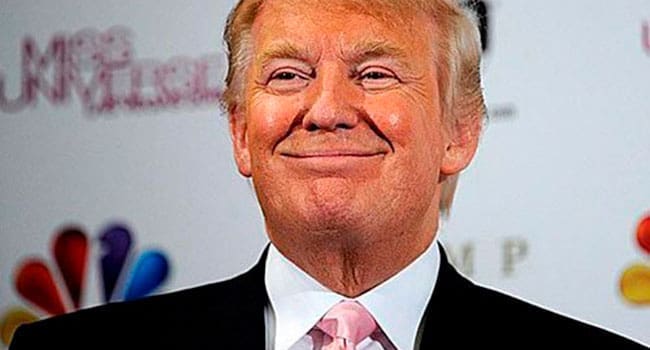 “NAFTA is a disaster; we need fair trade. Not free trade. It’s got to be fair.”
“NAFTA is a disaster; we need fair trade. Not free trade. It’s got to be fair.”
With these words, Donald Trump has set in motion a long overdue reassessment of Canada’s trade relations with the world. More importantly, Trump has awoken everyone to the reality that the soft option for Canada on trade and economic development – no matter who wins the U.S. Presidency – is coming to an end.
The North American Free Trade Agreement (NAFTA) has been in place for slightly more than two decades. The consequences of NAFTA have been profound, here and in the other member countries.
NAFTA has many critics but it has increased trade considerably. Just prior to the signing of NAFTA, trade between Canada, the U.S. and Mexico was US$288 billion. By 2014, total trilateral merchandise trade exceeded US$1.12 trillion – an increase of 3.9 times.
The vast majority of Canadian trade is conducted with the United States. Trade between the two nations is, on average, in the $1.5-to-$2-billion-a-day range; we have been each other’s biggest trading partners for decades. The cross-border totals for 2015 were approximately $280 billion, down from $312 billion in 2014. (The difference being mainly the fall in global oil prices.)
Regrettably, NAFTA has allowed Canadians to ignore each other. For instance, Alberta exports approximately three million barrels of oil a day through pipelines to the U.S. Because there is no national oil infrastructure, Ontario and other provinces to the east must import crude from Saudi Arabia at much higher prices.
Provinces behave like isolated kingdoms, with vast irrational, impenetrable restrictions to cross-Canada trade. The list goes on and on, illustrated by the story of Quebec’s unpasteurized cheeses. These prized products are exported in large quantities all over the world but are prohibited (by petty restrictions) from markets within Canada.
When asked by a foreign business leader a few years ago “where to place their Canadian beachhead,” Toronto lawyer and former trade official James McIlroy was clear: Put your headquarters in the U.S., you’ll have access to the full Canadian market there. It’s a better choice than anywhere in Canada.
NAFTA has made north-south trade easier while inhibiting the evolution of an integrated Canadian economy. The relative success of NAFTA has unravelled many of the ties that bind Canadians and inhibited a national strategy.
It would be ironic if an unintended consequence of Trump’s crusade against NAFTA was a reawakening of Canadian nationalism. He might force us to talk to each other, revisit our common goals and start controlling our destiny.
Apart from an obvious need to harmonize regulations and open provincial borders to facilitate inter-Canadian trade, there are some serious challenges a new Canada-first policy could tackle.
Canada has a serious investment problem: there is very little real investment by Canadians in our businesses. Most Canadian pension funds are prohibited from investing locally and very little of Canadians’ other savings makes its way to the treasuries of companies needing capital to build new products, hire staff or grow their businesses in Canada.
A new national policy should encourage capital markets reform to make it profitable to keep Canadian capital in Canada, working with Canadians to build their economy.
There are a host of other related areas where a national strategy could help Canadians escape the trap of being primary suppliers of raw materials and become a more sophisticated secondary or tertiary economy.
We should focus first on national strategies for globalizing exports, and rationalizing energy, the environment, forestry and manufacturing to help kick-start a new national mission.
As president, Trump would remove the easy option, reminding us that there is an urgent need to expand internal trade and build a healthy, growing economy.
It will take vision and real leadership, but it has already started. In Whitehorse last week, Canada’s provincial premiers signed a trade pact.
But the betting is this will not be enough. The federal government will have to use its overarching constitutional authority to create a truly national economy and reinvigorate this great country.
Thanks to Trump, of all people.
Robert McGarvey is an economic historian and former managing director of Merlin Consulting, a London, U.K.-based consulting firm. Robert’s most recent book is Futuromics: A Guide to Thriving in Capitalism’s Third Wave.
Robert is a Troy Media contributor. Why aren’t you?
The views, opinions and positions expressed by columnists and contributors are the author’s alone. They do not inherently or expressly reflect the views, opinions and/or positions of our publication.


